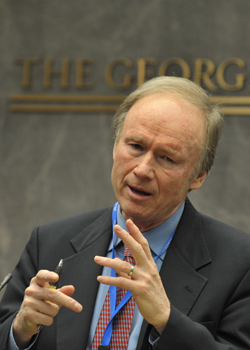Joan Steinman has recently posted "Appellate Courts as First Responders: The Constitutionality and Propriety of Appellate Courts' Resolving Issues in the First Instance" to SSRN. The article appeared in the most recent issue of the Notre Dame Law Review. Here is the abstract:
"Is there any place in our system for appellate courts to rule on issues that no inferior court has ruled upon? In fact, there are a surprising number of occasions on which courts of appeals, including the United States Supreme Court, address and decide questions that a trial court judge did not decide. On those occasions, they are not reviewing the decision of another tribunal. The Supreme Court has declared that intermediate federal courts of appeals (“IFACs”) have discretion to decide when they will address such issues.
After Introductory Notes that address the scope of this Article and prior literature, Part I discusses sequencing theory and the light it sheds on the importance of the issues raised here. Part II explores Article III, Congressional legislation, and pronouncements by the Supreme Court concerning the power of the Supreme Court and of intermediate federal appellate courts to take the first stab at issues. It also makes the point that the scope of appellate jurisdiction before and after final judgment constrains what new issues appellate courts may hear. Part III shifts the focus from power to judicial discretion, and examines the realities in the Supreme Court and in the federal intermediate appellate courts. It categorizes and discusses both cases in which the Supreme Court or IFACs did consider new issues and cases in which the Supreme Court or IFACs declined to consider new issues. Part IV evaluates these realities, exploring the circumstances in which appellate courts should and should not exercise their power to decide issues that were not ruled upon in the district courts. The Article offers a proposal to govern the circumstances under which a new issue should be heard on appeal. It considers whether and when the Supreme Court should have more leeway than IFACs. The Article then concludes."
Download the article here.



Leave a Reply